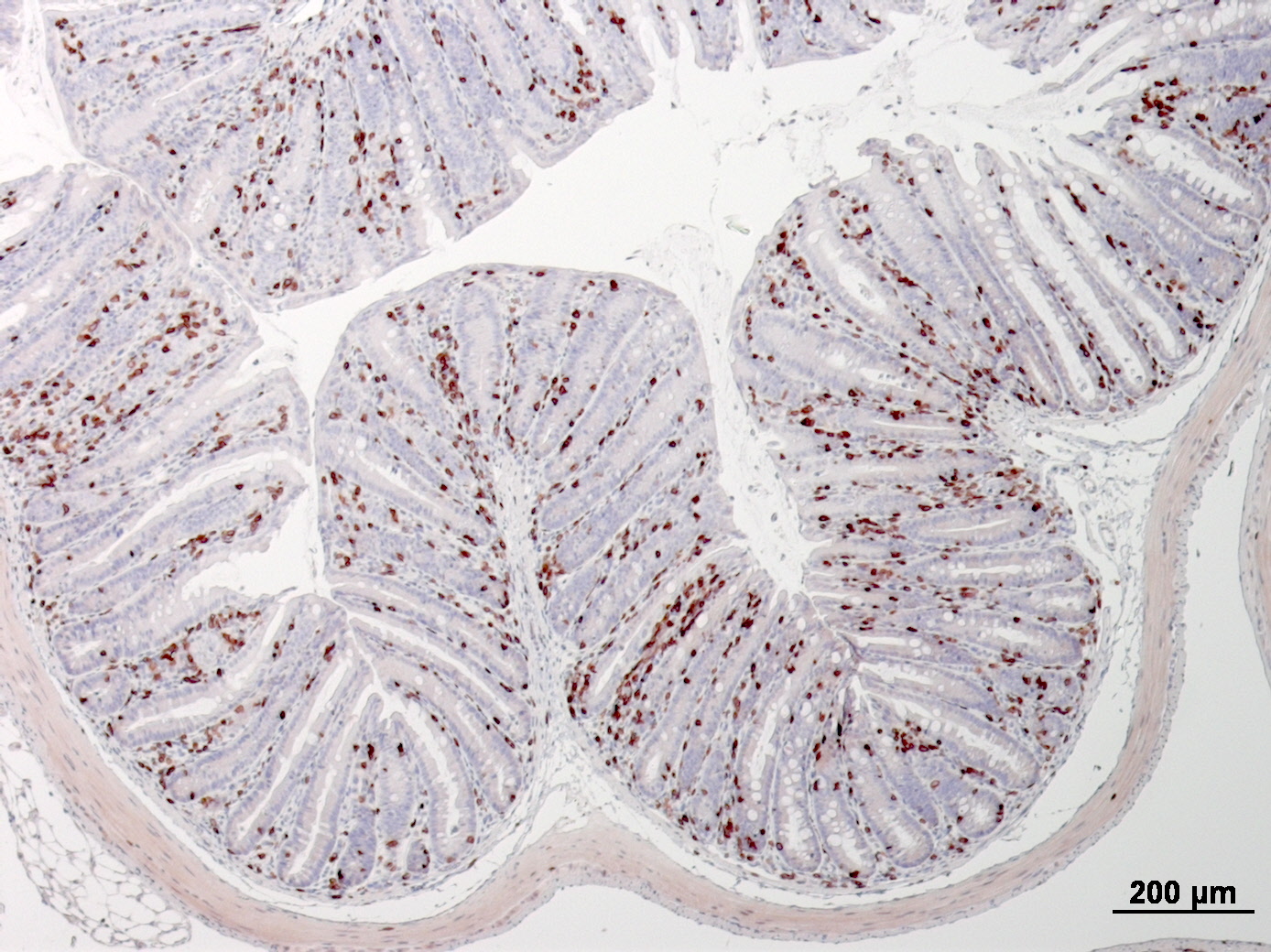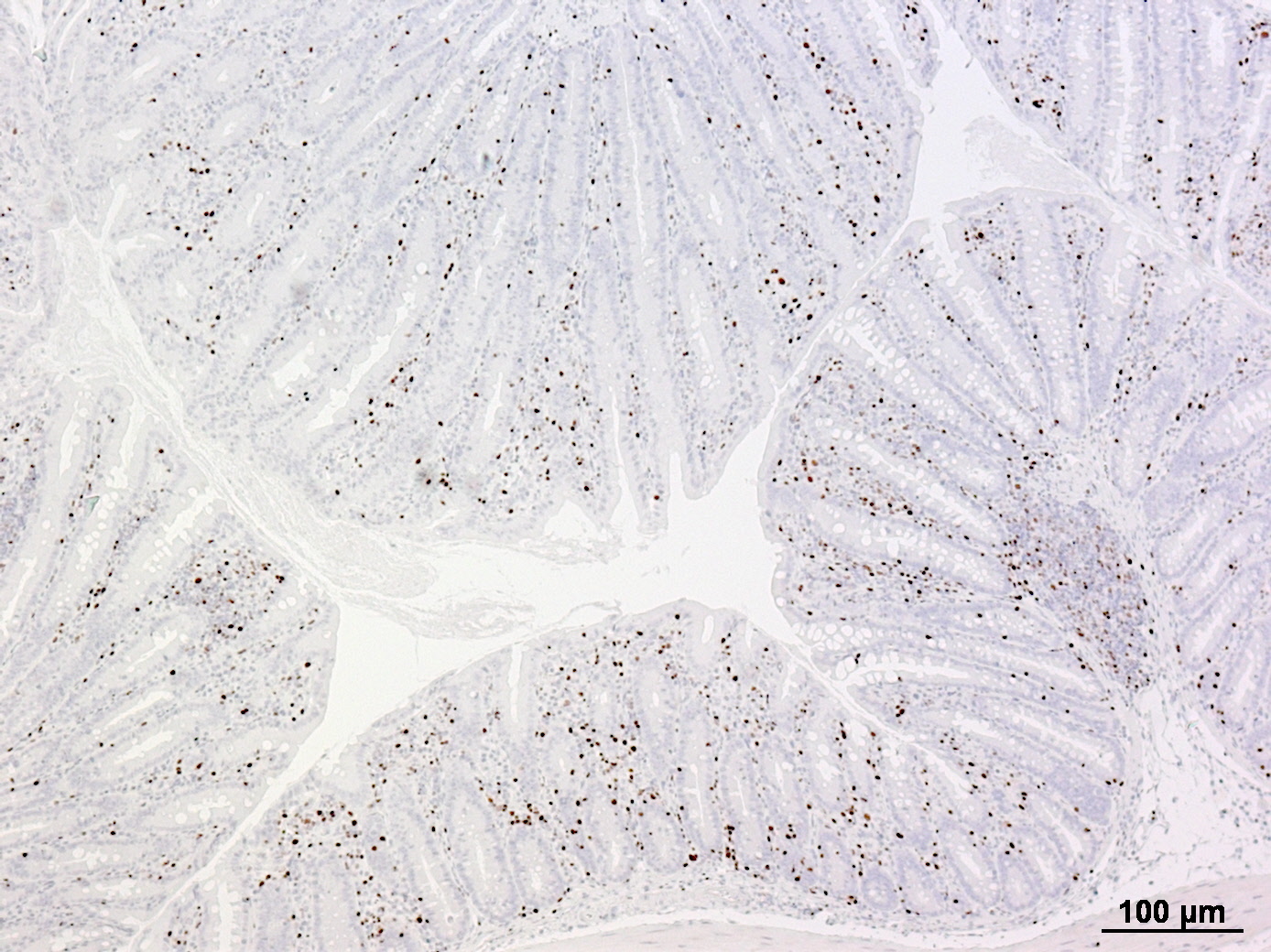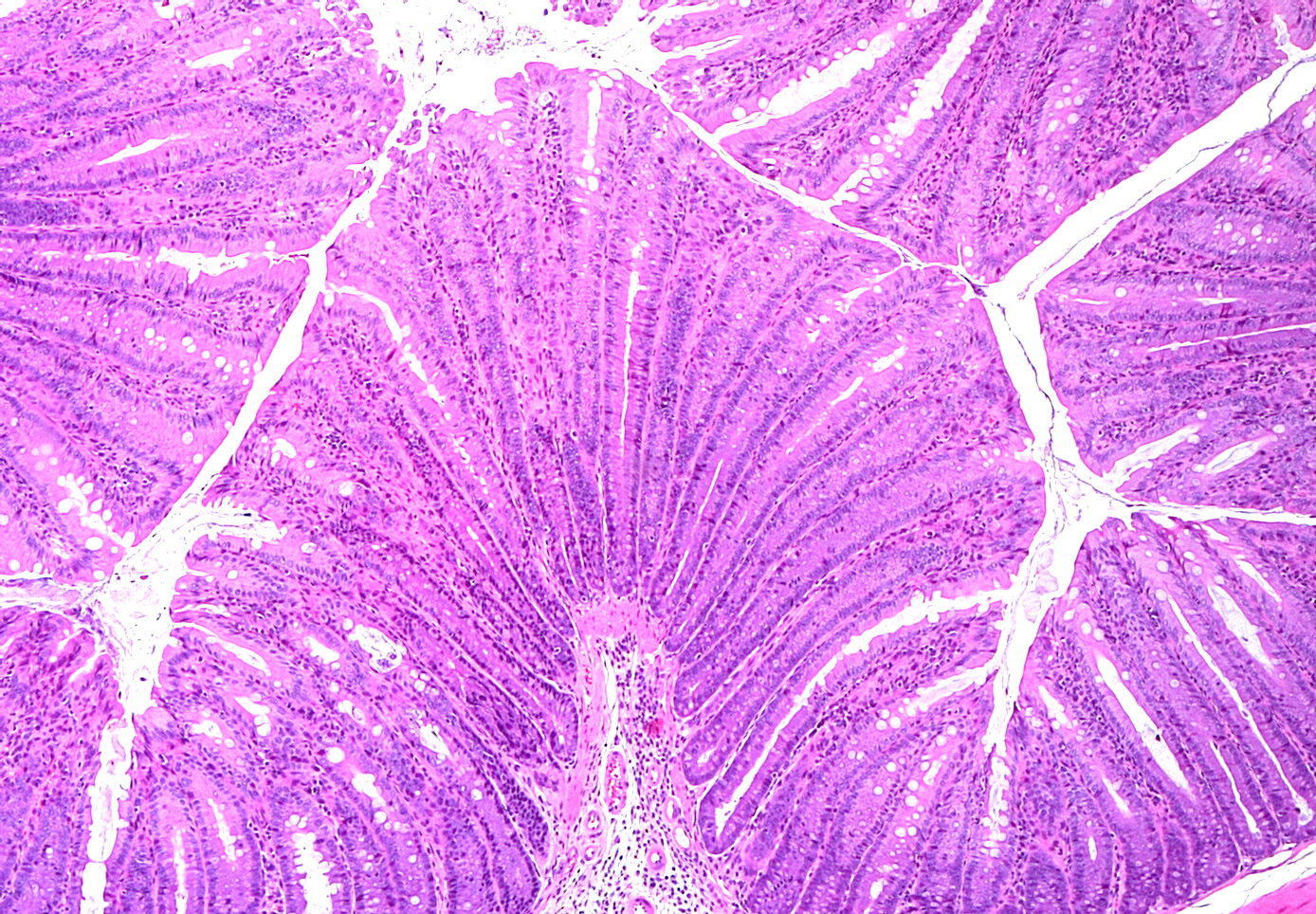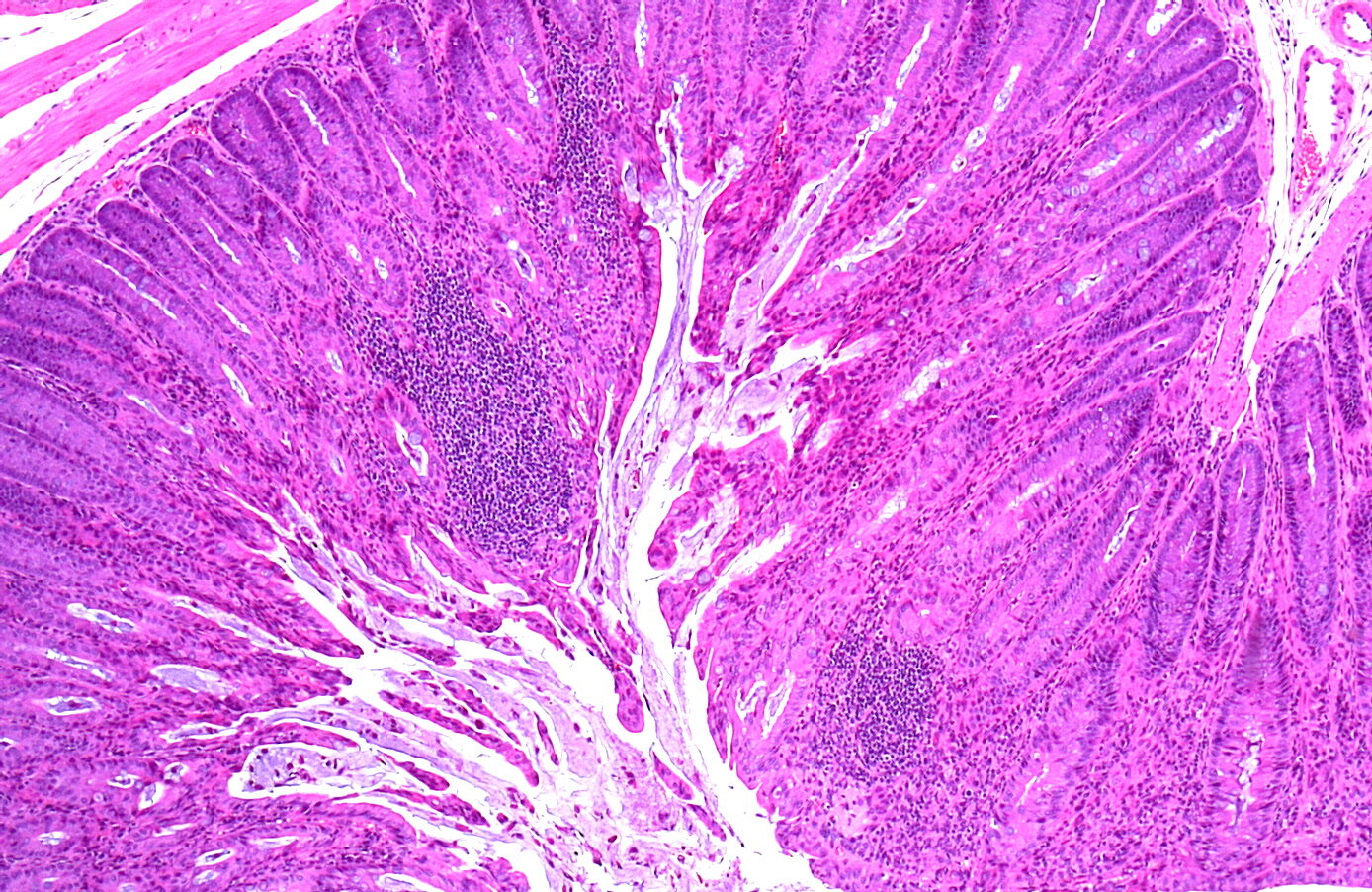IL-10 is a key anti-inflammatory cytokine secreted by immune cells, including regulatory Foxp3+ T cells and M2 macrophages. IL-10 and IL-10ra (the genes encoding IL-10 and the IL-10 receptor alpha subunit) are both candidate susceptibility genes for Inflammatory Bowel Disease in humans.
Deletion of the IL-10 gene results in dysregulated immune responses in the intestinal mucosa, allowing the establishment of inflammatory responses to antigens derived from the gut microbiome and the development of chronic colitis. Similar to the adoptive T cell transfer model, the IL-10 knockout model is characterised by a Th1/Th17-type immune response, showing features such as epithelial hyperplasia, mixed inflammatory cell infiltration in the mucosa and submucosa, crypt abscess formation, occasional ulceration and the formation of cryptopatches.
New therapeutic strategies for treating inflammatory bowel diseases can be benchmarked against a validated reference item.
Primary Readouts
- Large bowel histopathology
Further Readouts
- Large bowel weight : length ratio
- Immunohistochemistry and immunofluorescence
- Diarrhoea severity
- Weight loss
- FACS analysis of inflammatory cell response
- Multiplex analysis of serum and tissue cytokines
- Gene expression
- Intestinal permeability assay (FITC Dextran)
- ELISA: MPO & Fecal Lipocalin (Lcn-2) assay



